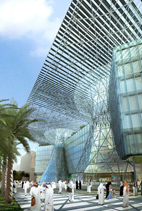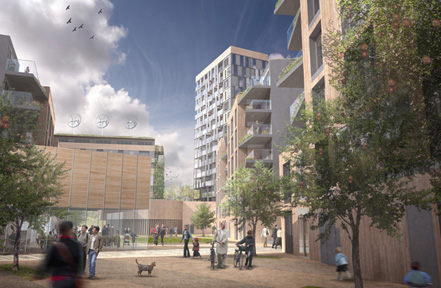How---and Where---Will We Live in 2015?
 The future is now for sustainable cities in the U.K., China, and U.A.E.
The future is now for sustainable cities in the U.K., China, and U.A.E.Future City Madsar - No cars in the land of oil.
In an ironic twist, the first city to fully turn its back on petroleum is likely to spring up in the United Arab Emirates, the oil-producing giant in the Middle East. Masdar, a carbon-neutral, zero-waste, walled metropolis now under construction adjacent to the Abu Dhabi airport, will have many innovative green technologies, but it may be most noteworthy for one thing it won’t have: gas-guzzling cars.
Nearly all of the world’s motor vehicles run on petroleum, and the environmental consequences are obvious. For example, 28 percent of carbon emissions in the United States result from the burning of 14 million barrels of oil a day for transportation, primarily in cars and small trucks. Masdar will do away with this problem. Urbanites will walk along shaded sidewalks, and if the sweltering desert heat gets to them, they will never be more than 500 feet from a public transportation network that puts traditional buses and subways to shame. Small electric vehicles, guided in part by magnets embedded in the road, will act as driverless taxicabs serving 83 stations situated throughout the roughly 2.5-square-mile city. Meanwhile, two electric rail systems will connect Masdar to the outside, carbon-polluting world.
The Masdar project was announced in 2006, and development is already in full swing; much of the financing is coming from the emirate of Abu Dhabi, which committed $15 billion. Developers have set a goal of sustaining 55,000 residents and visitors by 2013, with the first section of the city scheduled to open next year.
by Andrew Grant, Julianne Pepitone, Stephen Cass

You can return to the main Market News page, or press the Back button on your browser.

